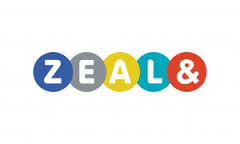The FDA’s correspondence includes the decision not to approve Zealand Pharma’s GLP-2 drug glepaglutide for short bowel syndrome.\n The FDA’s ongoing effort to establish a culture of “radical transparency” saw the agency publish another haul of complete response letters (CRLs) yesterday.The latest batch of 89 rejection letters was uploaded Sept. 4 along with a pledge by the agency to begin publicly releasing this type of communication at the same time the documents are issued to sponsoring companies. As with the initial mailbag of more than 200 CRLs that the FDA made available back in July, a dive into yesterday’s letters sheds further light on the agency\'s often-opaque drug review process.Among the letters are some high-profile decisions for the likes of Ultragenyx’s gene therapy for Sanfilippo syndrome type A, Capricor Therapeutics’ Duchenne muscular dystrophy cell therapy and Replimune’s melanoma drug RP1. The contents of the letters often map onto information already in the public domain, but there are still some fresh insights to be gleaned about the FDA’s decision-making process.‘Numerous unreported adverse events’ The FDA’s correspondence certainly sheds more light on the agency’s decision at the end of last year not to approve Zealand Pharma’s GLP-2 drug glepaglutide in short bowel syndrome. That application—which could have set up glepaglutide as a possible challenger to Takeda’s Gattex—was based on results from a single placebo-controlled phase 3 study dubbed EASE-1.The trial hit its primary endpoint, with twice-weekly doses of glepaglutide reducing weekly parenteral support (PS) volume—a measure of tube feeding—by a statistically significant 5.13 liters at 24 weeks compared to baseline. However, once-weekly doses of glepaglutide failed to yield statistically significant reductions in PS.When Zealand announced that it had received the CRL in December 2024, the company didn’t divulge much detail, only confirming that the agency had “concluded that Zealand Pharma’s application did not meet the full requirements for substantial evidence to establish the efficacy and safety of the to-be-marketed dose of glepaglutide.”The full letter from the FDA, which was uploaded yesterday, gives a more detailed insight into the agency\'s rationale. While acknowledging the twice-weekly dosing endpoint win, the FDA pointed to “numerous uncertainties that limit the interpretability and/or persuasiveness of the results.”These included “observed inconsistencies” in PS as a result of adjustments outside of the trial’s protocol, according to the FDA. The inconsistencies “raise concerns that the observed changes in PS volume may have been impacted by factors other than the drug’s efficacy and may not accurately represent PS volume requirements of the subject,” the FDA said in the letter. The agency also noted that “incomplete or missing documentations of urinary output in the 48 hours prior to study visits” were observed in up to 12% of patients in the EASE-1 trial, as well as in 68% of patients in the follow-on EASE-2 study.Meanwhile, an FDA inspection of one of the study’s clinical investigator sites identified “several concerning observations,” including “numerous unreported adverse events” among six of the nine patients enrolled there. Two of these unreported events were considered “serious” and involved patients being hospitalized due to acute kidney injury or hypomagnesemia, respectively.The FDA’s recommendation was for Zealand to conduct a further trial, and the Danish biotech is on track to kick off that study later this year. In the meantime, the company is awaiting an approval decision for glepaglutide from European regulators.Psychedelic uncertainties When it came to the rejection of Lykos Therapeutics’ application for its MDMA candidate midomafetamine to treat post-traumatic stress disorder, the potential objections had been out in the open for a while. Even before the agency sent the CRL in August 2024, the FDA had voiced concerns in briefing documents about whether a clinical trial for an MDMA treatment could ever be properly blinded, given that the drug “produces profound alterations in mood, sensation, suggestibility and cognition.”The agency’s Psychopharmacologic Drugs Advisory Committee had also been unconvinced of approval, in what was the first instance of an FDA committee reviewing a psychedelic treatment.Summarizing the contents of the CRL at the time, Lykos said the letter had “included concerns that Lykos\' clinical data were insufficient to demonstrate durability along with questions about expectancy bias stemming primarily from participants with prior MDMA use.” Reading the full letter reveals that the FDA also echoed specific prior concerns it had raised about the need to record “positive” effects of the treatment as adverse events for the purposes of the study.“As you were specifically advised, regardless of whether a participant, therapist or physician may find a drug experience to be neutral, positive or favorable, events that are relevant to the abuse potential of a drug or potential for impairment should have been captured and reported,” the FDA wrote in its letter.“Because such events were not captured and reported, the studies failed to adequately characterize the safety of midomafetamine, its acute effects, the duration of impairment, or signals of abuse potential within these studies,” the agency added.The last we heard from Lykos, it hadn’t let this setback get it down. As of January, the biotech had met with the FDA to “chart a path forward for an independent third-party review of prior phase 3 clinical data and an additional phase 3 trial.”A matter of timing Regeneron got off lightly when the FDA rejected its application for the T-cell engager odronextamab to treat patients with follicular lymphoma or diffuse large B-cell lymphoma. Announcing the CRL in March 2024, the pharma was keen to stress that the agency had not identified “any approvability issues.”Regeneron’s original plan had been to enroll patients in various confirmatory phase 3 lymphoma trials that formed part of the wide-ranging Olympia program while it sought accelerated approval. Enrollment in the dose-finding portion of these trials had already begun when the company filed its application, but Regeneron explained at the time of the rejection that the FDA decided “the confirmatory portions of these trials should be underway and that the timelines to completion be agreed prior to resubmission” of the application.A close read of the FDA’s letter suggests the agency was certainly skeptical of Regeneron’s proposed time frames.“The current conduct and projected completion date of any of these Olympia trials in follicular lymphoma do not provide sufficient assurance of timely completion of the trial(s),” the letter reads.When it came to resubmitting the application, the FDA said Regeneron would be wise to “demonstrate sufficient progress in the conduct of the confirmatory portion of the confirmatory trial(s) to provide sufficient assurance of timely completion of the trial(s).\"The pharma returned to the FDA with an updated application in February, but this resulted in another rejection a few weeks ago. This time, Regeneron blamed the decision on problems uncovered during an FDA inspection of an Indiana plant now owned by Regeneron’s manufacturing partner Novo Nordisk.Regeneron can at least take some comfort from the fact that despite these U.S. setbacks, odronextamab secured the green light from European regulators back in August 2024.









